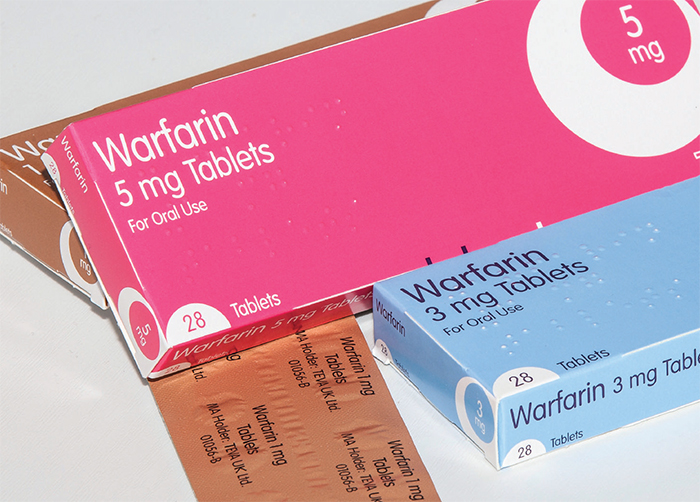Latest

INR self-monitoring reduces adverse events
In Latest
Discover the latest pharmacy news with daily updates and information to keep you in the know.Bookmark
Record learning outcomes

Patients on long-term anti-coagulation therapy who test their own blood clotting time from home and continue to be managed by their GP are significantly less likely to experience a thromboembolic event, according to Oxford University researchers.
Point-of-care testing means patients can either adjust their own medication according to a pre-determined dose-INR schedule (self-management) or they can call into a clinic to be told the appropriate dose adjustment (self-monitoring).
In their Cochrane systematic review, the researchers looked at data from 28 randomised trials involving 8,950 participants carried out in 11 different countries that compared self-monitoring and self-management with standard monitoring. The results from 18 trials, which measured thrombo-embolic events, showed there was almost a halving of events with self-monitoring and self-management in comparison to standard monitoring.
The review also found reduced mortality in trials of patients who self-managed (but not in those who self-monitored) and no effect on major haemorrhage. However, data from recent studies show a beneficial effect of self-monitoring.
“There are more than 1.2 million people in the UK on warfarin therapy, of whom fewer than 2 per cent self-monitor their INR levels despite mounting evidence that self-monitoring alone can cut the risk of death by nearly two-fifths and more than halve the risk of strokes,†says lead author Professor Carl Heneghan, director of Oxford University’s Centre for Evidence-based Medicine in the Nuffield Department of Primary Care Health Sciences.
“Suitable patients still need to be identified and educated for self-monitoring as it is not feasible for everyone, but the evidence clearly demonstrates that self-monitoring can improve the quality of oral anticoagulation therapy and adds weight to the argument that more patients should be given the opportunity to benefit from this treatment approach.â€
The researchers conclude that future studies should set out to understand in more detail why some people decide to use self-management – or not – and identify ways to improve its uptake and effectiveness.
